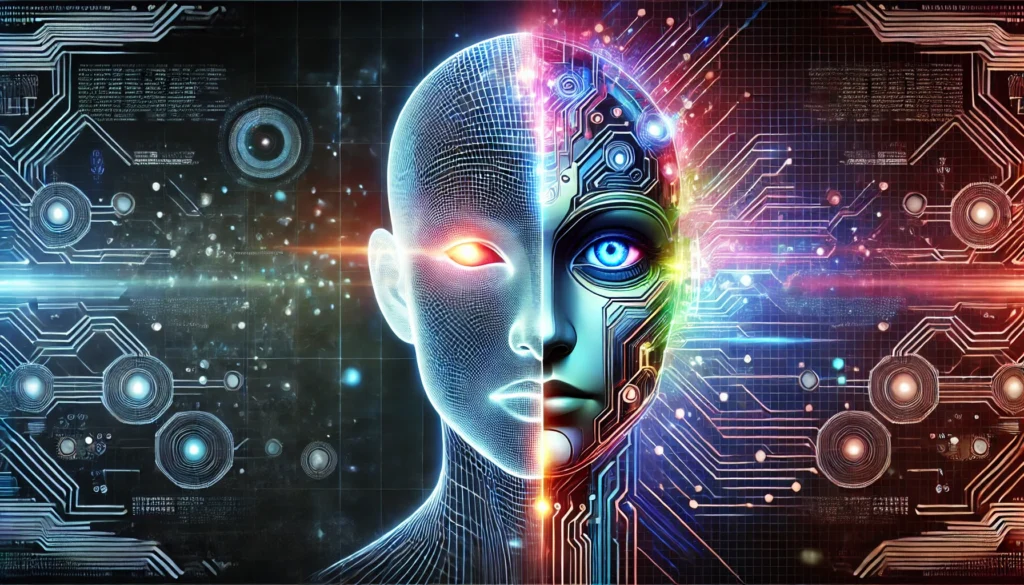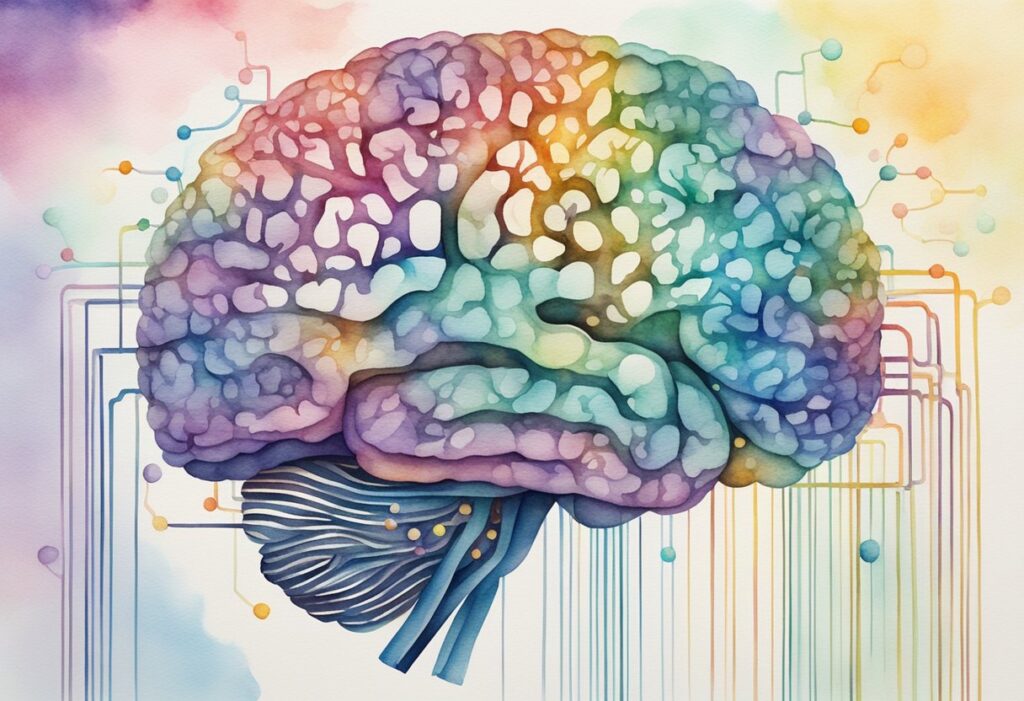Foundations of AI in Professional Sports
The video discusses the use of data and analytics in sports, particularly in player evaluation and coaching decision-making. It also touches on the integration of analytics in different sports, the role of agents and players in understanding and utilizing data, and the evolution of applying data and AI to sports. The conversation also delves into the speaker’s background in basketball and math, and the potential for more detailed player movement data in the future.
As professional athletes, we’ve witnessed the transformative impact of artificial intelligence (AI) on our industry. AI has become the backbone of sports analytics, offering insights that were previously unimaginable.
Initially, data was collected purely for statistical purposes. But now, machine learning algorithms turn raw numbers into actionable strategies. We use artificial intelligence to optimize our training, enhance performance, and reduce injury risks. Moreover, AI supports us in game-day decision-making by predicting the opponents’ strategies.
Furthermore, deep learning technologies have sharpened our competitive edge. Complex patterns within the game footage are now discernible, thanks to these sophisticated algorithms. As a result, we refine our techniques and adjust tactics promptly and precisely.
Additionally, big data has radically shifted how we approach scouting and recruitment. Now, potential signings are evaluated using a breadth of analytics, ensuring that teams make informed decisions.
Undoubtedly, data science underpins the progressive leap in our sports domain. Teams that leverage analytics strategically gain a significant advantage on the field.
The seamless integration of machine learning within our training regimes identifies potential improvements tailored to each athlete’s unique physiology. This individualized approach synergizes with collective goals, pushing our team to unprecedented heights.
Applications of AI in Team Sports

Artificial Intelligence is revolutionizing the sports landscape. We leverage its capabilities to heighten our game across various team sports, ensuring competitive edges and optimal experiences for everyone involved.
AI-Driven Analytics and Team Performance
We harness AI-driven analytics to evaluate and boost our team’s performance at an unprecedented scale. By analyzing massive amounts of data, these systems offer us real-time insights on both the strengths and weaknesses of players.
In the NBA, machine learning models are extensively utilized to dissect game footage, enabling us to strategize proactively. Coaches depend on these analytics to make informed decisions during pivotal moments, tailoring training programs that meet each athlete’s unique needs.
Injury Prevention and Health Monitoring
Moreover, by tracking our movements with AI-powered sensors, we can prevent injuries before they occur. Real-time health monitoring systems detect fatigue levels and biomechanical patterns that could lead to injury.
We integrate these tools into our training programs for rigorous injury prevention and smart load management. Through this, leagues across football and basketball have witnessed a reduction in the rates and severity of injuries.
Recruitment and Talent Scouting
AI also transforms recruitment. Analyzing historical data from recruits, AI streamlines the scouting process, giving us a broader and more precise perspective on prospective talent.
During the draft, AI assists in comparing players’ potential contributions to our team dynamics. Recruiting becomes more strategic and data-driven because AI allows us to pinpoint the best fit for our gameplans.
Fan Engagement and Marketing
Finally, we employ AI to amplify fan engagement and drive our marketing efforts. AI-powered cameras engage audiences with dynamic shots of live action, while analytics predict game outcomes and stats, sparking excitement.
Additionally, we personalize marketing campaigns for sports teams, ensuring that our followers feel connected to our team’s journey, strengthening league-wide fan loyalty.
AI Influence on Individual Sports

In the realm of individual sports like tennis and artistic gymnastics, artificial intelligence (AI) is revolutionizing how we elevate our performance and strategize our training.
Performance Analysis in Tennis and Gymnastics
In tennis, where milliseconds and millimeters can define the outcome of a match, AI gives us competitive insights that are game-changing.
During practice sessions, AI-powered video analytics break down our serve and return patterns, providing a depth of statistics that were previously unattainable.
At Wimbledon, for instance, AI systems analyze hundreds of matches to forecast potential outcomes, allowing us to prepare more effectively for specific opponents.
Similarly, in artistic gymnastics, we use AI to scrutinize our routines down to the finest detail. Every twist, spin, and leap is recorded and analyzed, enabling us to push the boundaries of our abilities.
The insights gleaned from this performance data help hone our techniques, optimize routines, and can even inform risk assessments for more complex maneuvers to avoid injuries.
Data-Driven Insights for Athletes and Coaches
We, as athletes, alongside our coaching teams, benefit immensely from AI’s data-driven insights.
AI systems process and interpret vast amounts of performance data to offer personalized coaching advice. This can be vital for adjusting our training regimens or for deciding when to peak during the competitive season.
For coaches, the advantage comes in the form of detailed analytics that guide their decisions.
By understanding the statistical underpinnings of our past performances, we work together to map out strategies that could significantly influence our career trajectories.
Furthermore, these insights can support prognostications related to our potential career longevity, helping us to plan with greater foresight.
Economic and Strategic Impact of AI

As athletes, we recognize the transformative power of artificial intelligence on our industry’s economy and strategy. AI propels financial and tactical advancements in surprising ways, revolutionizing not just how we play, but also how the sports world thrives economically.
Investment and Valuation in Sports Analytics
We’ve seen a surge in investment and valuation for sports analytics companies. This influx of capital underscores the immense potential that data-driven decisions have to offer.
Budgets now increasingly allot funds to invest in sophisticated analytics tools, as front offices seek to outsmart their opposition off the field.
- Sports analytics investment: Poised to dramatically soar as teams strive for competitive edges.
- Valuation: Climbing, as accurate and predictive analytics become more vital in decision-making.
Notably, a study from Sports Business Journal sheds light on this phenomenon, detailing the burgeoning trajectory of generative AI within our competitive arenas.
Betting, Odds, and Dynamic Pricing
Moreover, AI has revamped the sports betting landscape with real-time odds and dynamic pricing strategies.
Our industry now leverages sophisticated models that cater to sports betting by offering more nuanced odds. Advertisers and companies see this as a gold mine, engaging with fans who are ready to place their bets.
- Dynamic pricing: A game-changer in ticket sales, maximizing revenue based on demand.
- AI-driven odds: More accurate, drawing in a broader audience of bettors.
For example, a market analysis available at Mordor Intelligence confirms the robust growth expected in the AI in Sports Market, propelled by the increasing use of such technologies.
Ethical and Technological Challenges

In professional sports, the use of AI technologies brings forth pressing concerns in privacy and fair play that we must vigilantly address.
AI and Privacy Concerns in Sports
We find ourselves in a realm where facial recognition technology and tracking data are commonplace in stadiums and training facilities.
Such advancements, while enhancing fan experience and athlete performance, significantly ramp up privacy and security risks.
For instance, trackers gather vast quantities of data, from heart rates to precise location information, which, if mishandled, could comprise our private lives outside the arena.
Fairness and Bias in Algorithmic Decisions
Moreover, the incorporation of AI into decision-making, such as through an AI referee, raises questions about fairness and inherent biases.
Algorithms fed with skewed data could reinforce prejudicial outcomes in games where we strive for impartiality.
Similarly, the use of AI in decision-making — whether for player selection or in-game calls — must ensure unbiased, just results that uphold the integrity of our sports.
FAQ’s
- How exactly does AI make its mark in the world of professional sports?
- Let’s dive into how AI is shaking things up in pro sports, from analyzing player stats to keeping injuries at bay and everything in between!
- Can you give me some cool examples of how AI is used to analyze athlete performance?
- Sure thing! We’re talking about the nifty tech that breaks down how athletes perform, move, and shine on the field or court.
- How does AI swoop in to help prevent and manage player injuries in pro sports?
- You won’t believe how AI lends a helping hand in keeping our favorite athletes in tip-top shape, predicting and preventing injuries, and getting them back on their feet faster!
- Tell me about how AI amps up game strategies and decisions for coaches and teams.
- Strap in for the inside scoop on how AI crunches numbers, predicts opponent moves, and gives teams the winning edge when it’s game time!
- How does AI pitch in when it comes to spotting and recruiting top talent for sports teams?
- Ready to hear how AI helps coaches and scouts spot the next big thing, fine-tune team lineups, and bring the best players together?
- What’s AI’s role in boosting fan excitement and enjoyment during sports events?
- Get ready to cheer, because we’re chatting about how AI amps up the fan experience, delivers tailor-made content, and makes watching sports even more awesome!
- Are there any tricky ethical issues surrounding AI in pro sports that we should know about?
- Let’s tackle the tough stuff: We’ll explore the ethical side of AI in sports, from privacy concerns to making sure the game stays fair and square.
- What’s on the horizon for AI in professional sports? Any cool new trends to look forward to?
- Hold onto your hats! We’re peeking into the future of sports tech, from virtual reality training to AI-powered game analysis, and beyond!
Books
- “Moneyball: The Art of Winning an Unfair Game” by Michael Lewis
- While not specifically about AI, this book delves into the use of data analytics in baseball, which laid the groundwork for the adoption of AI and advanced analytics in professional sports.
- “Sports Analytics: A Guide for Coaches, Managers, and Other Decision Makers” by Benjamin C. Alamar
- This book provides an overview of sports analytics techniques, including the use of AI and machine learning, to improve decision-making in sports management and coaching.
- “Sport Analytics: A Data-Driven Approach to Sport Business and Management” by Frank Daumann and Oliver Kuhn
- This comprehensive guide covers various aspects of sports analytics, including the role of AI in analyzing player performance, optimizing game strategies, and enhancing fan engagement.
- “AI in Sports and Entertainment” edited by Magy Seif El-Nasr, Anders Drachen, and Alessandro Canossa
- This book explores the application of AI technologies in sports and entertainment, covering topics such as player tracking, game simulation, and fan engagement.
- “Artificial Intelligence in Sports Technology” edited by R.M. Chandima Ratnayake and Ruwan Egodage
- This book provides insights into the use of AI in sports technology, including case studies and practical applications across different sports disciplines.
Online Resources:
- Sports Techie: This website covers the intersection of sports and technology, including articles and news on AI in professional sports.
- MIT Sloan Sports Analytics Conference: The annual conference brings together experts and practitioners in sports analytics, including sessions on AI and machine learning in sports.
- SportTechie: This online publication covers sports technology news and trends, with articles on the use of AI in various aspects of professional sports.
- Journal of Sports Analytics: This academic journal publishes research articles on sports analytics, including studies on the use of AI and machine learning in sports performance analysis and decision-making.
- YouTube Channels: Various YouTube channels dedicated to sports analytics and technology, such as “The Analyst” and “Sportlogiq,” provide videos and discussions on AI in professional sports.





